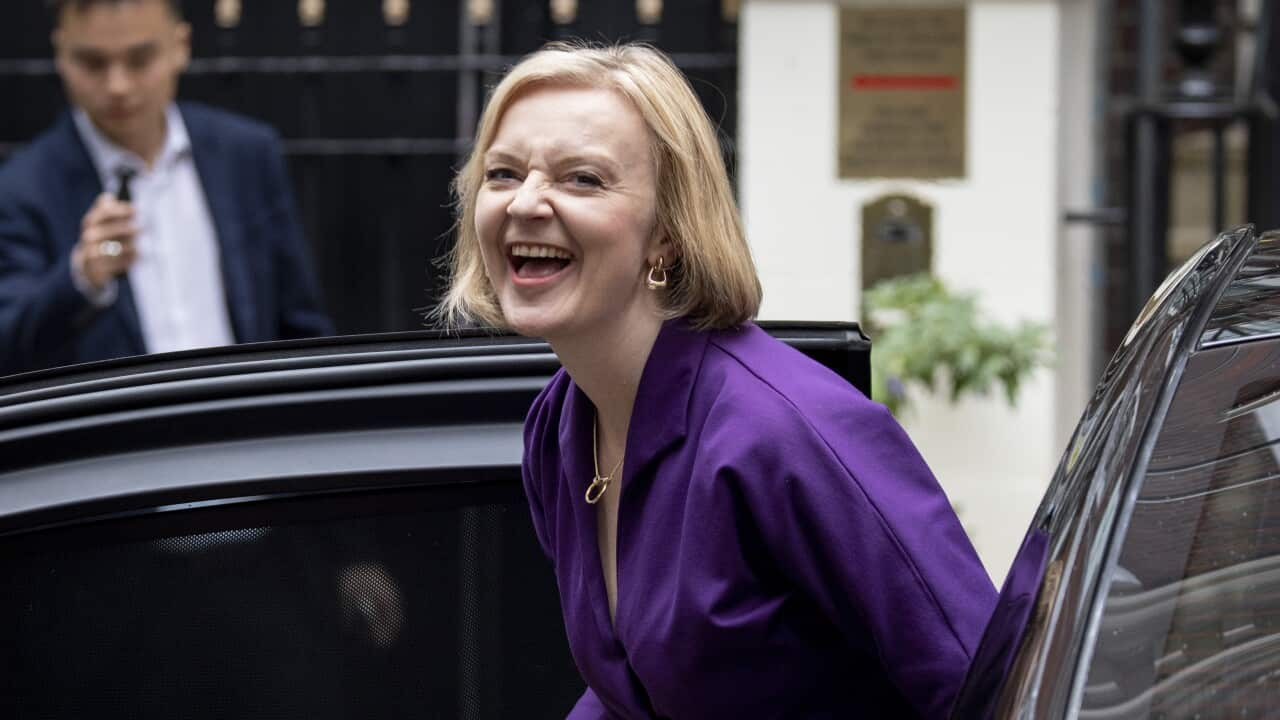Key Points
- UK prime minister Liz Truss did a round of local radio interviews
- She was given a grilling by a number of interviewers
As far as the view from metropolitan London is concerned, BBC Local Radio is a cosy place, dealing with local issues, staffed by friendly people who couldn't make it on national radio.
As it turns out, that view was about as wrong as it's possible to be.
UK Prime Minister Liz Truss - who has avoided being interviewed by national TV and radio in recent days after her chancellor's mini-budget caused an economic crisis - agreed on Thursday to a round of interviews with BBC local stations around the country.
With the International Monetary Fund telling her government they should step back from their economic policy of tax cuts, and the Bank of England having to step in to prevent pension funds and insurers crashing, there was intense interest in what she had to say.
Before the interviews took place, scornful London journalists expected Ms Truss would be given an easy ride, facing questions about her favourite colour, or what she likes for breakfast.
But nothing could be further from the truth, with the presenters being tough and incisive.
"Where have you been?" asked BBC Leeds Presenter Rima Ahmed.
"Well, I think we've got to remember the situation we were facing this winter," Ms Truss replied.
Comparing the interviews around the country, it was hard not to believe the new PM was working with a pre-prepared script.
Radio Kent's Anna Cookson quoted a listener's comment - and got a similar answer.
"And Lydia says: 'Are you ashamed of what you've done? Are you?'"
Ms Truss answered: "I think we have to remember what situation this country was facing. We were going into the winter with people expected to face fuel bills of up to £6000, huge rates of inflation..."
"And you've made it worse," Ms Cookson said.
Ms Truss's mini-budget came up again and again, though she was keen to focus on the energy measures her government has taken to lower the costs of bills for UK households.
Faced with BBC Radio Stoke's John Acres, she appeared lost for words at times.
"We need to borrow more this winter, for the energy crisis that we're facing," Ms Truss said.
"We're going to spend more in mortgage fees under what you've done based on the predictions than we would have saved with energy," Mr Acres replied.
BBC Radio Norfolk's Chris Goreham then pushed the prime minister - who is a Norfolk MP - on the negative reactions to her mini-budget:
"Since Friday the IMF, the Bank of England, the Bishop of Norwich, the RSPB [Royal Society for the Protection of Birds], wildlife trusts across the country, have all spoken out against various parts of the mini-budget. Can you reassure our listeners that your judgement is better than those well-respected organisations and individuals I've just mentioned?," he asked Ms Truss.
Ms Truss responded: "As prime minister, I have to do what I believe is right for the country and what is going to help move our country forward. And, of course, there are many people with many different opinions. But what I think nobody is arguing with is that we had to take action to deal with what is a very, very difficult economic situation."
Arguably one of the disadvantages of a politician facing a local radio journalist is that they have an in-depth knowledge of local issues.
Radio Lancashire's Graham Liver tackled Liz Truss on the subject of fracking - which uses hydraulic fracturing to extract fossil fuels from shale rock.
The British government is keen to pursue fracking in Lancashire, where locals who objected to the scheme were dismissed as 'luddites', opposed to new technology, by business minister Jacob Rees-Mogg.
The government has previously said it would only happen with local consent.
"What does local consent look like, prime minister?" Mr Liver asked.
"Well, the... the.... the Energy Secretary will be laying out in more detail exactly what that looks like. But it does mean... mean making sure there is local support for going ahead," Ms Truss said.
The presenter then said: "it sounds like you don't know."
Media commentators in London were no longer mocking the local radio presenters, but praising them on Twitter for holding the Ms Truss to account.
The Daily Mail's Dan Hodges tweeted "Liz Truss currently sounds like a pre-recorded message telling you she's sorry the Government is out, but please call back later."
The Daily Telegraph's Jack Maidment said: "Liz Truss insisted economic chaos is not confined to the UK and there are "stormy times" across the world. She refused to accept the mini-Budget had played any sort of role in the instability we have seen domestically since last Friday. Safe to say a lot of people disagree."
He then described the regional radio interviews as "brutal".
Byline Times' journalist Adam Bienkov agreed, writing on Twitter: "That has to be the most brutal round of local radio interviews I've ever heard a Prime Minister face. Not a single note of contrition from Liz Truss, or even the slightest indication she plans to change course in any way."


